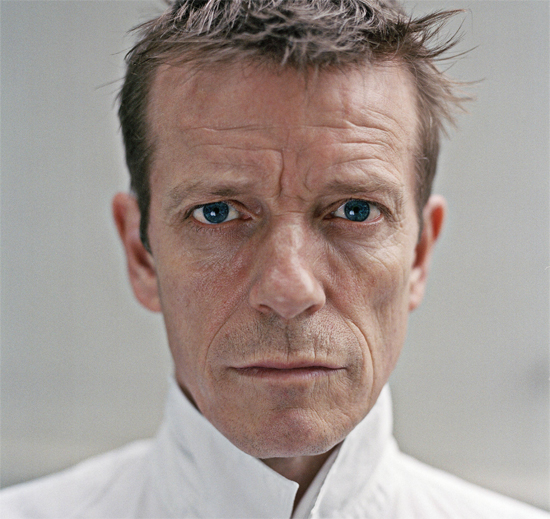Long before he was a soundtrack composer, or a record producer, or even a musician, Simon Turner was a minor teen star of disc and screen. His appearances in early 70s children’s dramas such as The Adventures Of Black Beauty and Tom Brown’s Schooldays had led to a deal with Jonathan King’s UK Records, who hoped to market him as a British answer to David Cassidy. That Turner managed to escape his fate as a "bad actor" and peddler of "awful pop music" was due to a combination of inquisitiveness, chance and the increasing availability of simple audiotape technology.
Turner is reminiscing about his first cassette recorder. "My dad was a submariner. He brought them back from the Far East, Hong Kong it must have been, and gave us each one for Christmas. It was just life-changing. You had a machine that could record a sound, and that was delicious.
"The thing about cassettes is you don’t need to plug in. You’ve got a cassette, a speaker to hear what you’ve done, and then it just takes you into fantasy land. Then you get into that ‘swish’ ‘whoosh’ [tape head noises]… fantastic. I love it."
Sound recording has been the one constant element of Turner’s meandering musical career, right back from his frustrating apprenticeship with Jonathan King. Although dismissive of the records they made, he gives credit to King for the extra-curricular musical opportunities available to him. "He had a room full of records at his house, and I’d just listen to records day and night. And he had a Revox, so I was learning how to record sound. I’d go there and record whatever I liked. Radiators as percussion, scraping away.
"I wasn’t allowed to go to the recording sessions. I’d turn up and Jonathan would say, ‘Here’s the track, have you got the words? Go and sing.’ It was really, really, pretty awful. But he introduced me to the Revox, which was very important. And it made me want to go and do something on my own, so I got some money and I went into the studio with, believe it or not, Judge Dread, the reggae guy.
"We recorded a song I really liked, ‘Hello, I’m Your Heart’, and the B-side had a synth part in it. We got Ken Elliott from Seventh Wave, a synth band who were on Decca Records at the time. I did this really David Bowie, ‘Five Years’ influenced B-side about New York falling to pieces in a modern day, catastrophic earthquake type situation. I’m trying to be really serious, and I’m like 16 and a half, 17-years-old. And it’s ridiculous. That just made me realise I wanted to get away from awful, bad pop music, Jonathan King stylee, and try and form an identity for myself. And that’s really what I tried to do musically."
At the time of our chat, Turner was in the middle of working on a new soundtrack to Herbert Ponting’s 1924 documentary The Great White Silence. Ponting’s film was created from footage he shot while accompanying Captain Scott’s final, fatal Antarctic expedition during 1910-12 (Ponting had returned home on the Terra Nova ship prior to the deaths of Scott and his men).
Fellow sound recordist Chris Watson gave Turner an invaluable start on The Great White Silence. "He’s very kind," says Turner. "He asked me earlier in the year about what I was doing, and I said I was doing the Scott film. He immediately said ‘I’ve got this recording, I’ll send it to you’, and gave me recordings from inside Scott’s hut. At the very beginning, the day after I got the phone call, the day I got the job, Chris gave me this. It was extraordinary.
"I’ve done a couple of days in the studio, started recording the soundtrack in the middle of the film and worked our way outwards. Every time we go round we realise we actually missed a bit: ‘Oh, did we do the seals?’ I think it’s probably too busy at the moment, I know we’re hitting too many things. There’s no need to hit every iceberg [with sound], it’s not necessary. Leave the first one, hit the second one. Leave the third one, leave the fourth one, hit the fifth one. If it wasn’t for the strings, I’d be in a lot of trouble with the penguins. Penguins are sorted."
Although much of Turner’s soundtrack work in silent films, or with directors such as Derek Jarman, Cynthia Beatt and Isao Yamada, resides on the art house circuit, he has had a hand in some major studio features, including Paul McGuigan’s Gangster No.1. Perhaps unsurprisingly, his experiences with commercial soundtracks are sometimes less satisfying than his independent cinema commissions.
"I find it very difficult getting work on contemporary films," admits Turner. "I really liked doing Gansgter No.1, that was fantastic, but I did a whole electronic thing all the way through. I thought it was great, this really wicked, aggressive electronic score, but people were going ‘You can’t get away with that.’ And I didn’t need Johnny Dankworth myself. Sweet man, really nice, and I really liked what he did, but I really liked what I did as well. I mean, Gangster No.1 could have been a bit more left-field if they’d kept with the minimal electronic score. It would have been more harrowing I suppose. Thanks goodness it’s in there, but there’s a lot more lying around which was very vicious, dramatic. But hey, what do I know? I shouldn’t complain."
Simon Fisher Turner plays Sprawl’s 15th Birthday Party at Cafe Oto, Dalston on Thursday, January 27th, with Common Objects and Viv Corringham / Peter Cusack / Clive Bell. See the Sprawl site for more information. The Great White Silence is showing on the Discovery Channel tonight. Visit the Discovery website for more information



